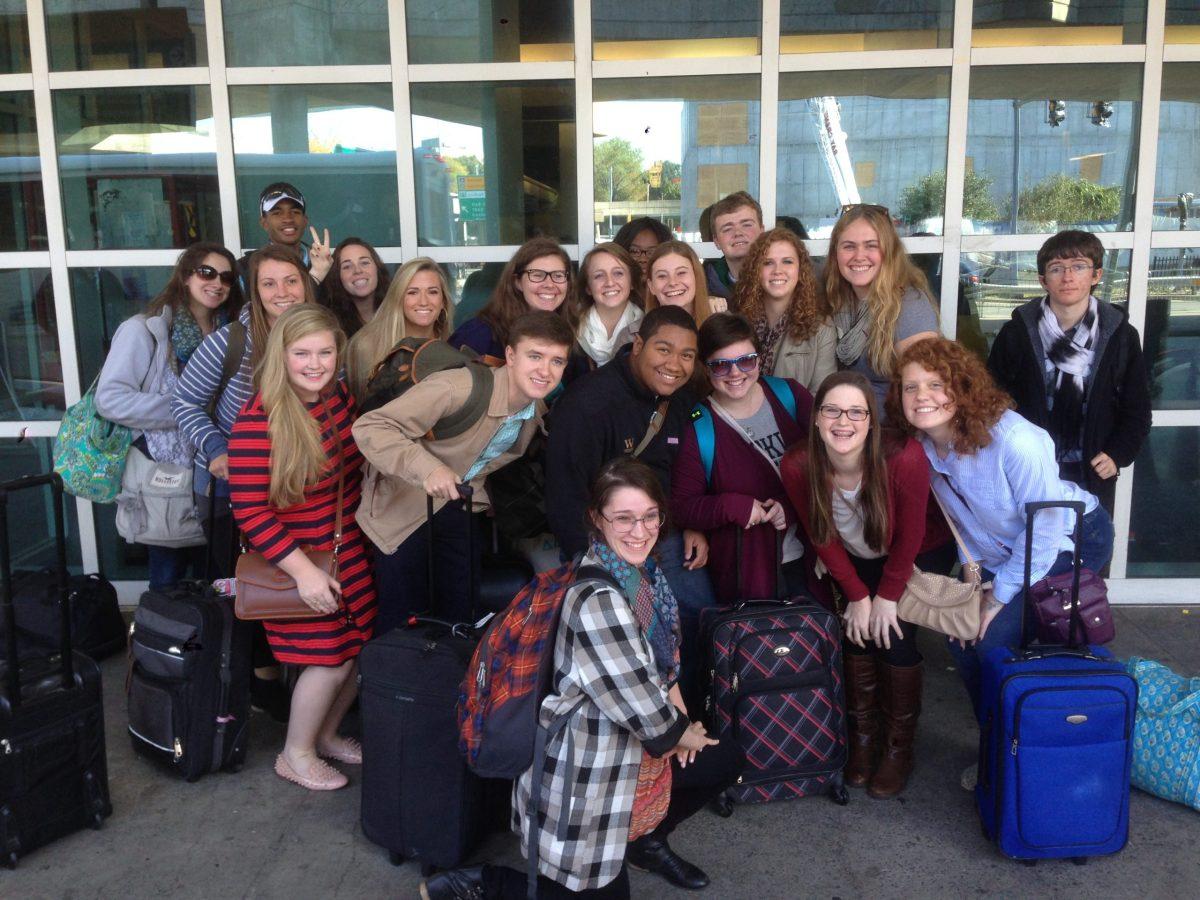THE FIRST RESIDENTIAL COMMUNITY FOR FIRST-YEAR STUDENTS—
Although this is the first time the Theater of Justice program has existed on campus, Dr. Mark Ferguson says, “I’ve taught a version of this class as a Humanities 101 Seminar three or four times, with a slightly different focus each time; the last version of that class was taught to the current senior class.”
Theater of Justice is the only current residential living/learning community on campus. The class includes 16 first-year students. “Many knew that it was somehow linked to extra-curricular and experimental opportunities like a handful of other courses called ‘Course-Plus’ this year and that there would be extra work required outside the classroom, but they did not know about the perks,” says Ferguson.
Ferguson is not the only professor working with this special group of people. Dean of Students Roberta Bigger is the staff person associated with the class, and Professor Colleen Balance is their academic adviser.
Bigger says she has enjoyed working with the group. “They are bright, engaged, energetic and insightful. This unique collaboration has benefitted the students as well as the faculty and staff. The students have had a richer experience in their Humanities class, and they have had an opportunity to live together in Carlisle Hall as well as travel together,” says Bigger. “They also have the same PE class, and they have been able to be acquainted with me for FYI topics in my home on campus. They have built bonds with one another, and this gives them a strong support network that others students may not feel so early in their time at Wofford. I look forward to following them through their Wofford experiences and watching how they capitalize on this experience.”
Ferguson says that President Nayef Samhat and others in the administration were interested
in the idea of residential living/ learning communities for first year students and have been discussing it for months.
“After talking about it, listening to others talk about it and thinking about it in a systematic way,
I thought I saw a way we could make it work, so I pitched it,” says Ferguson. “The Theater faculty
were enthusiastic about the idea of building excitement about the theater and the department, and believe strongly that the stuff that happens outside the classroom can enhance and enrich what’s going on in the classroom.
Studies also show that this kind of program has very positive results in terms of student retention, student engagement and student performance. Also, we got to go to NYC in the middle of the semester—it was a super cool experience for the students.” Although Balance does not meet with them as a group, she is able to work the students individually.
“What I have enjoyed about the group is the diversity,” she says, “and I find this is typical of theater in general. What theater has to offer is a way to express yourself through any art form imaginable: story, visual, musical, film, movement, etc. Many of the kinds of people who find they have a need to express themselves, or tell their story, are usually deep thinkers, reflective, and by this definition, they are unique. This group is a collection of unique individuals, and this equals diversity,” says Balance.
Not all of the students are majors in the theater program but many are interested in performance, film, media, culture and music
“I bet they all will tell you that the way the course is being taught and the habits of mind they are developing by studying plays the way we are will undoubtedly help them as they move through their college career, regardless of their major. That’s the glory of a liberal arts education—everything you study informs and engages with everything else,” says Ferguson.
Ferguson hopes this program will become very successful and be the start of the tradition of residential living/learning communities at Wofford.































